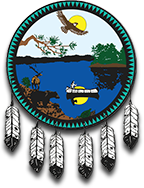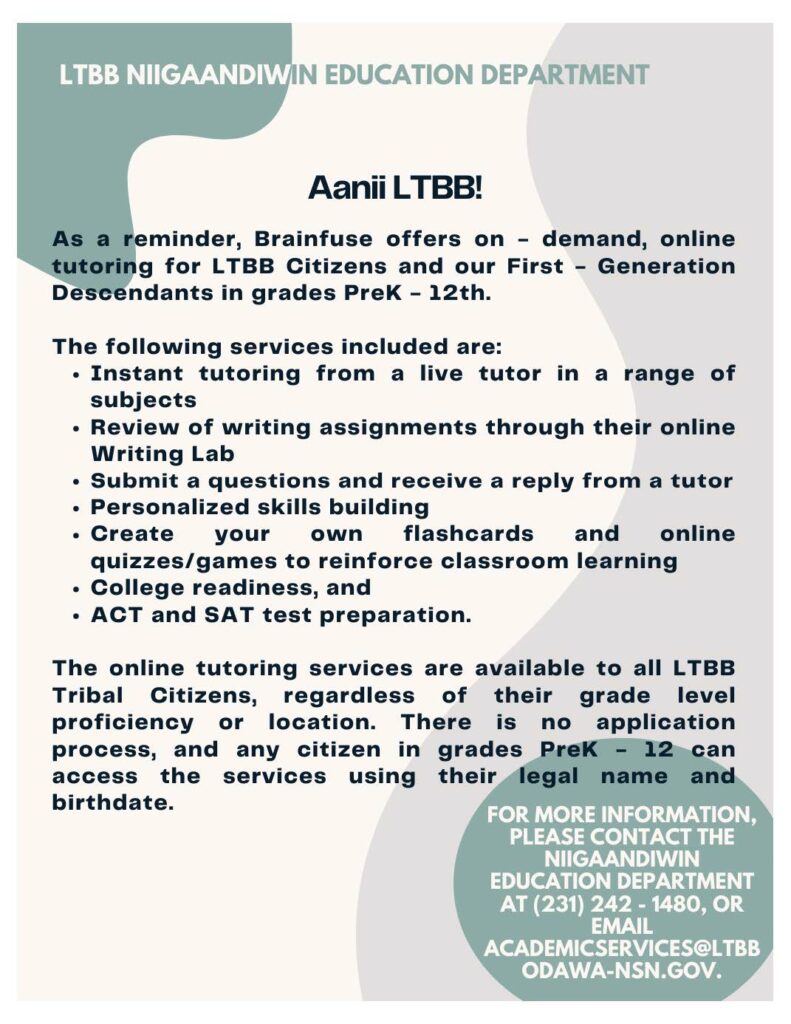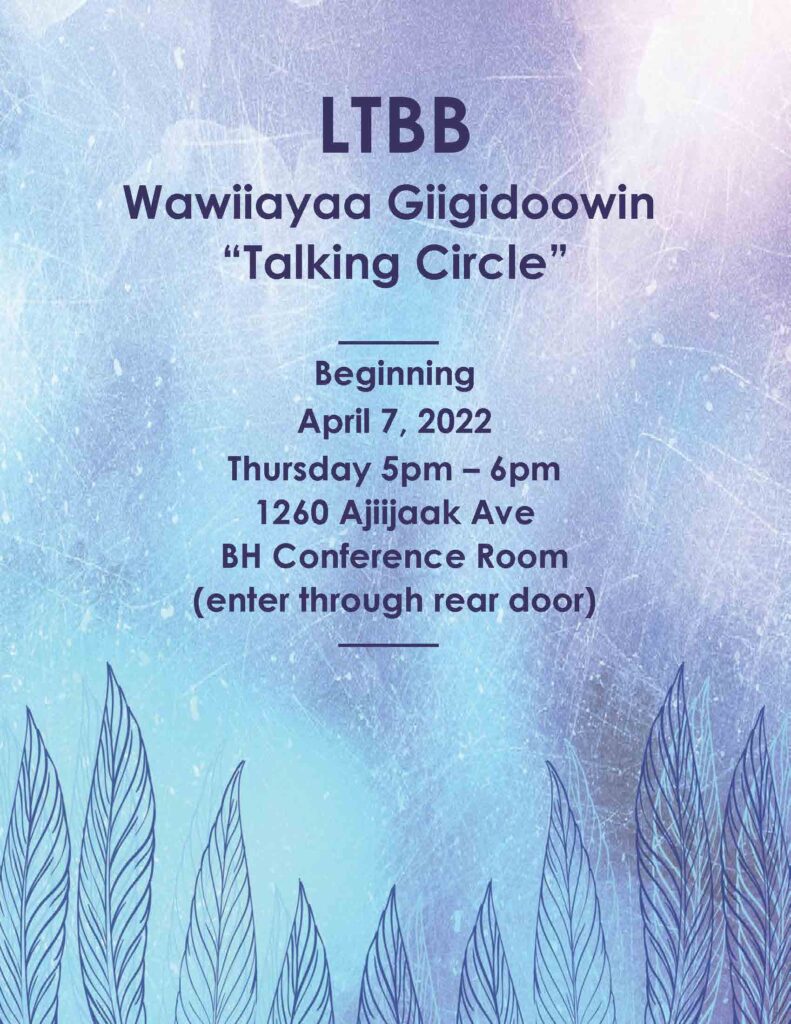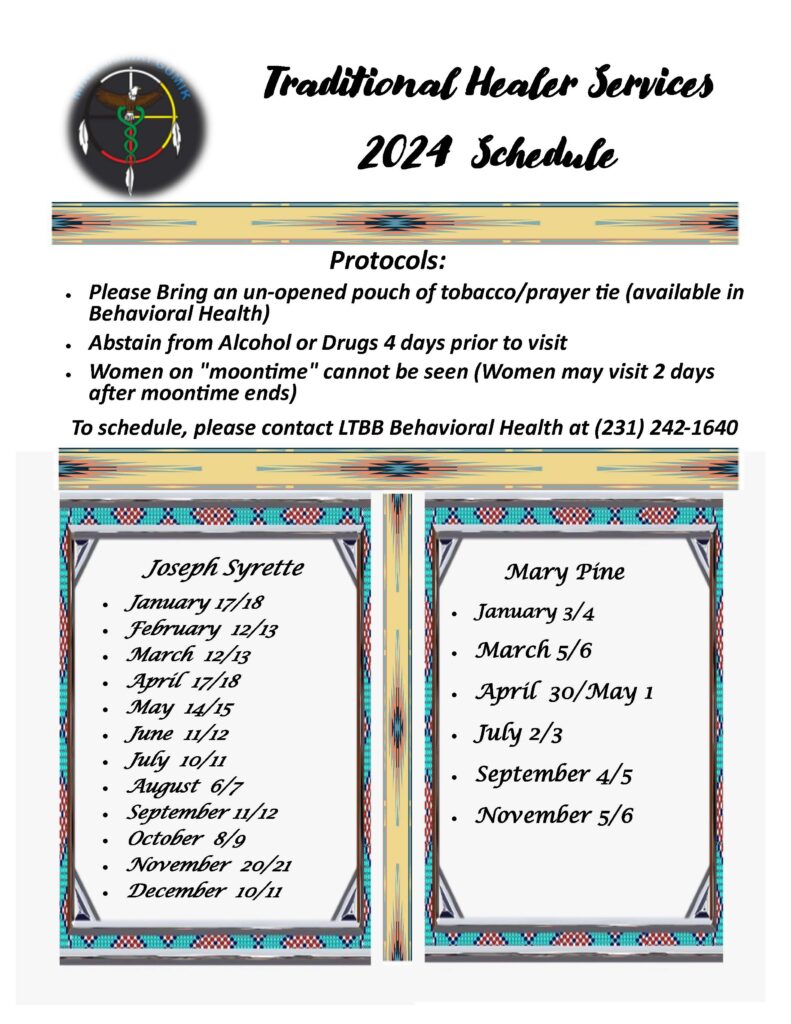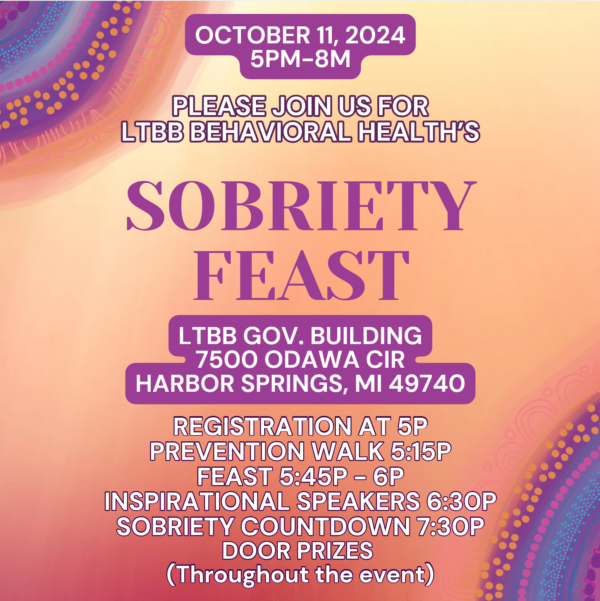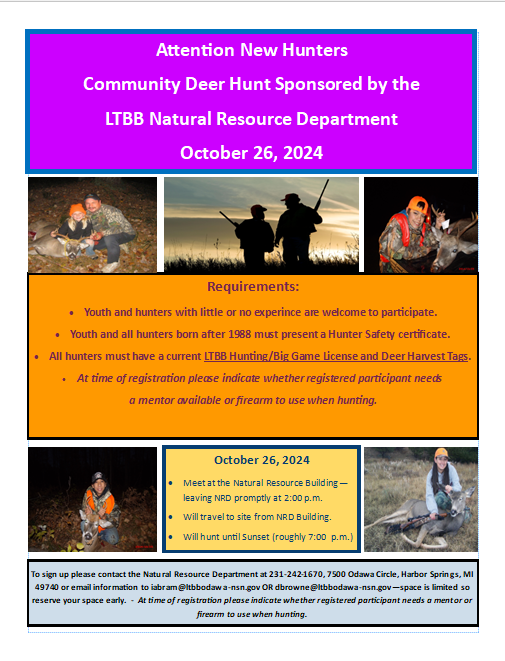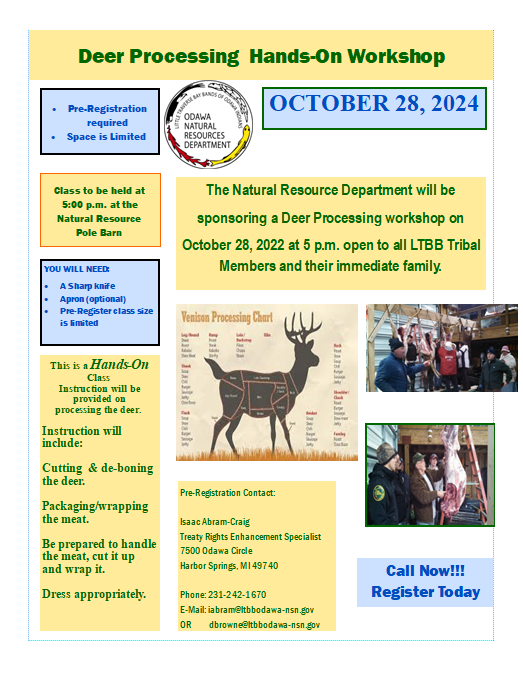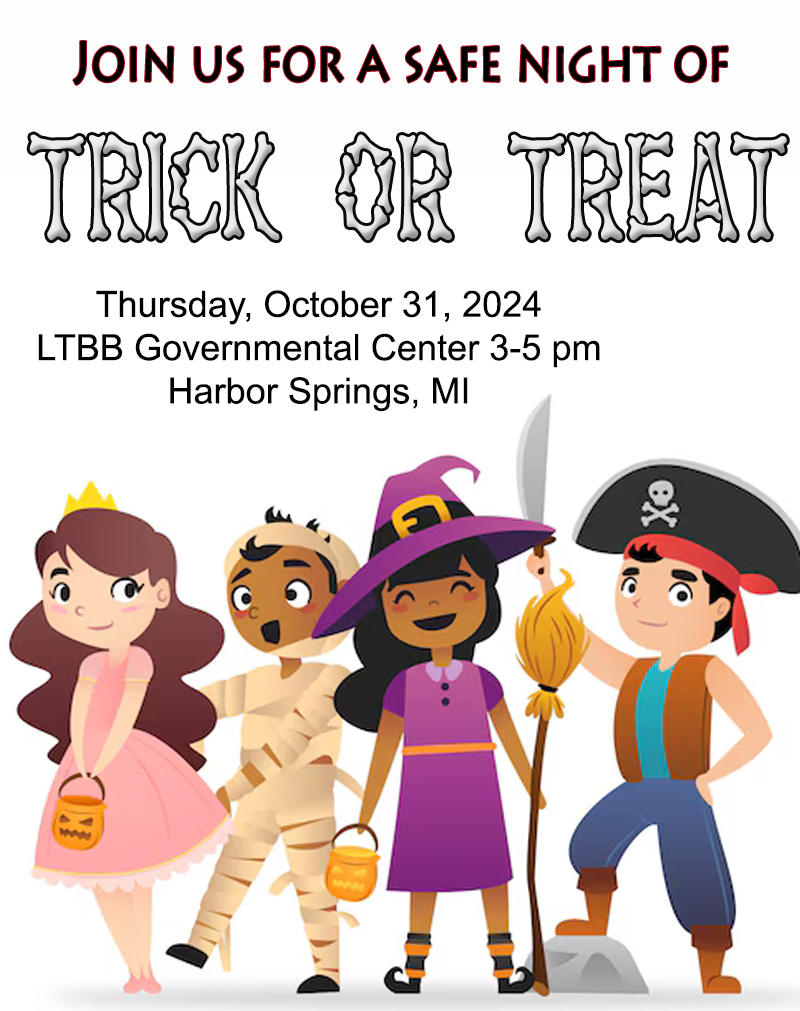K-12 Services
In response to COVID-19 and school closures, the Education Department has developed this suggested Online/Remote Learning Resource List to provide information and guidance to assist students, families and our local school districts.
You can access the Online Learning Resource List at: tinyurl.com/ltbb-edu-online-learning.
K-12 Education Assistance Scholarship
The purpose of the K-12th Grade Education Assistance Scholarship is to supplement, assist, and enhance the educational opportunities for all LTBB students in Preschool and in grades kindergarten through 12th grade. The program is Tribally funded and available once per academic year per student; the academic year is defined as August 1st- July 31st.
Shirley Naganashe Oldman Secondary Education Honorarium
The purpose of the Shirley Naganashe Oldman Secondary Education Completion Honorarium is to promote the completion of secondary education program by offering a $100 monetary award for all LTBB Tribal Citizens who complete a secondary education program.
Advocacy
K-12 staff serve as a school liaison for the LTBB Tribal Community advocating on behalf of students and families around obtaining special education services, IEPs, 504 plans, and retention.
Academic Support
Brainfuse On Demand Online Tutoring
